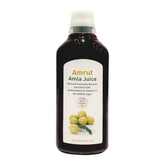
Why Dandruff ???
Rather than asking why dandruff? It’s important to know what dandruff is. It is irritating, scratching your head all day long and flaking around, on all your pretty dress doesn’t sounds good right. That’s why it is important to know what you are fighting against, what are its causes, what symptoms does it carries and how it can be cured. So, here are we to put an end to your queries.
What Is Dandruff?
Dandruff is a common condition that causes the skin on the scalp to flake. It isn't contagious or serious. But it can be embarrassing and difficult to treat. Mild dandruff can be treated with a gentle daily shampoo.
What Are the Signs & Symptoms of Dandruff?
Common signs and symptoms of dandruff include:
- White flakes of dead skin in your hair and on your shoulders
- Red, crusty, or raw areas on your scalp
- An itchy scalp
What Causes Dandruff?
Dandruff is a mild form of seborrheic dermatitis. The exact cause of seborrheic dermatitis is not known, but it's likely a combination of things like:
- too much skin oil (sebum) in the oil glands and hair follicles
- a type of yeast found on the skin called Malassezia
Stress, cold and dry winter weather, and some hair care products may make dandruff worse.
Almost anyone can have dandruff. Many teens and adults live with it. Hormone levels are high during teen years, which causes more oil production. This may be why dandruff usually begins around puberty.
Dandruff isn't contagious. You can't catch it from or give it to another person.
How Is Dandruff Diagnosed?
Health care providers can diagnose dandruff and seborrheic dermatitis based on symptoms (like an itchy scalp and flakes on the shoulders) and an exam.
How Is Dandruff Treated?
In most cases, over-the-counter dandruff shampoo can control a person's dandruff.
For mild dandruff, first try regular cleansing with a gentle shampoo to reduce oil and skin cell buildup. If that doesn't help, try a medicated dandruff shampoo. Some people can tolerate using a medicated shampoo two to three times a week, with regular shampooing on other days if needed.
Follow the label directions on the products how much to use and how often. When your dandruff improves, it's OK to use dandruff shampoo less often. Once a week might be enough to keep flakes off your shoulders.
If dandruff doesn't get better after 4–6 weeks, try another shampoo with a different active ingredient.
Talk to the pharmacist if you have any questions about dandruff shampoos.
When Should I Call the Doctor?
Call your health care provider if:
- Your dandruff doesn't go away with dandruff shampoo.
- Dandruff or itching gets worse.
- Your scalp gets red or swollen.
- You have red and flaky skin in areas other than your scalp.
The doctor may prescribe prescription-strength shampoos or topical steroids for itching and redness.
What Else Should I Know?
People with dandruff also may get seborrheic dermatitis on other parts of their body, including:
- eyebrows
- nose creases
- behind the ears
- in sideburns and beard areas


